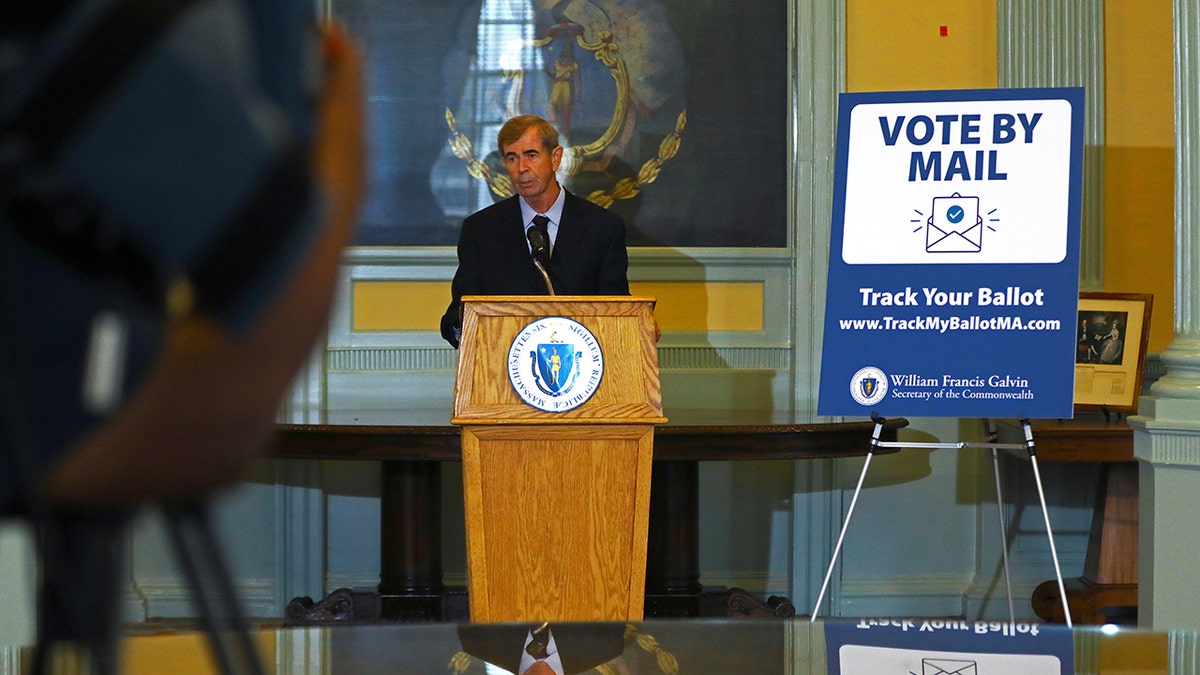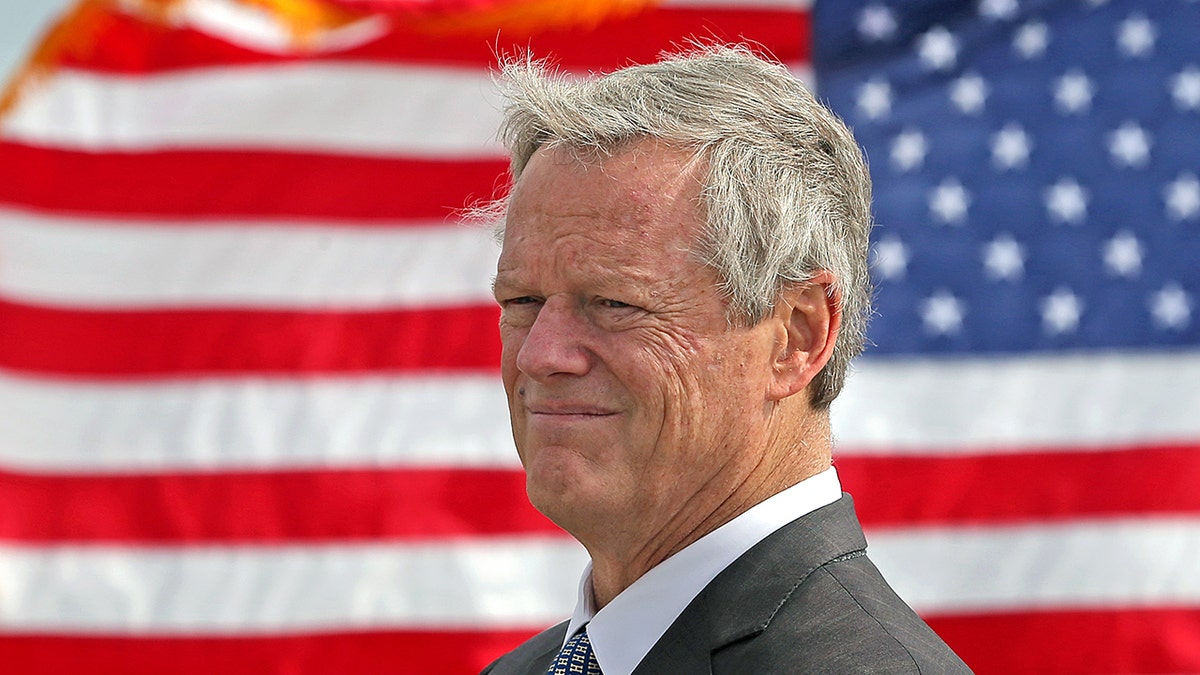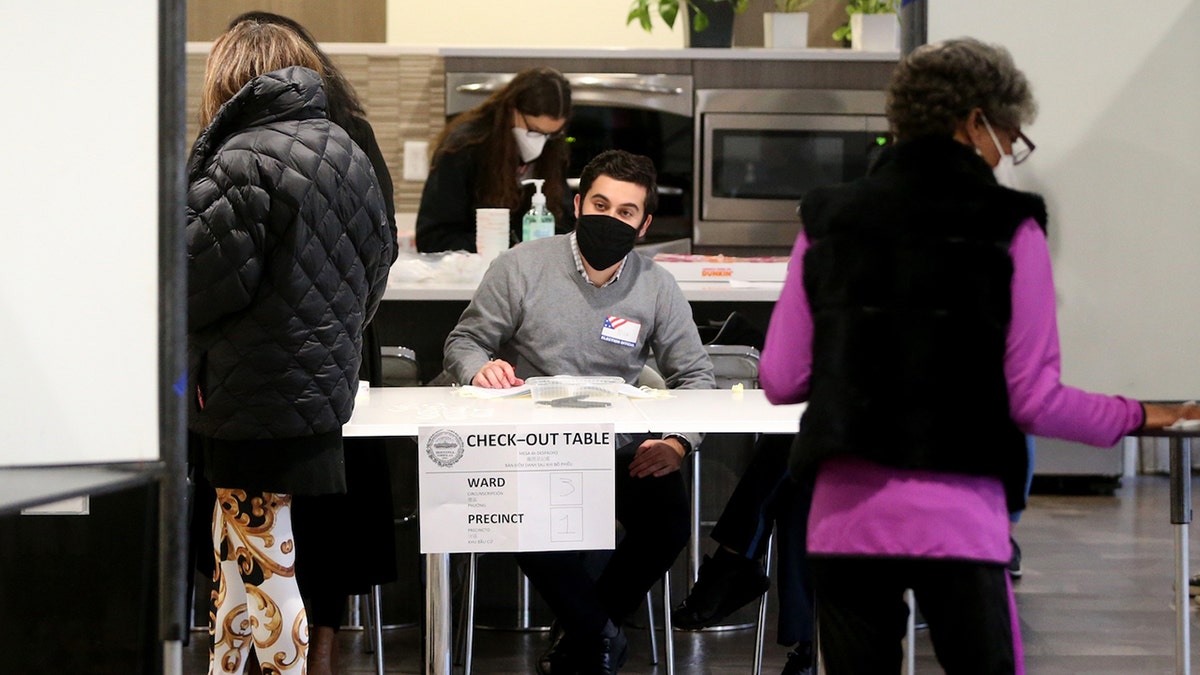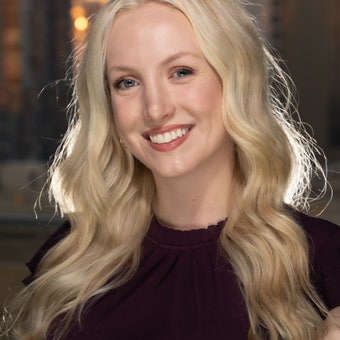Fox News Flash top headlines for July 13
Fox News Flash top headlines are here. Check out what's clicking on Foxnews.com.
Massachusetts’ highest court rejected an effort by state Republicans to limit mail-in voting, clearing the way for all voters to submit absentee ballots by post ahead of the September primary.
Massachusetts Supreme Judicial Court upheld in a ruling Monday that the state’s new law – dubbed the VOTES Act – does not violate the state’s constitution.
The law was signed by Republican Gov. Charlie Baker on June 22 after clearing the Democrat-controlled state Legislature, but the state GOP contended permanently allowing mail-in voting would prompt voter fraud.
State election officials have already begun readying more than 4.7 million ballot applications to send to voters by July 23 ahead of the Sept. 6 primary.

Massachusetts Secretary of State William Galvin holds a press conference in the Senate Reading Room of the Massachusetts State House to discuss mail-in voting and an early voting period during the continuing coronavirus pandemic in Boston on Oct. 5, 2020. ((Photo by Pat Greenhouse/The Boston Globe via Getty Images))
Secretary of the Commonwealth William Galvin, a Democrat whose office oversees elections, said the decision is a win for voters of all parties.
"It’s a sign to the whole country at a time when false claims have been causing some states to roll back voter rights that we are moving forward," he said.
Massachusetts Republican Party Chairman Jim Lyons said he plans to appeal the ruling to the U.S. Supreme Court, arguing the case "presented significant issues of both state and federal law."
"The Supreme Judicial Court has heard the case and made their decision to not enjoin the law," he said. "We appreciate their consideration. With respect, however, they are the final arbiters of state law."
"Their decisions must also conform to the federal constitution," he continued. "Having conferred with counsel, we will be seeking emergency relief from the U.S. Supreme Court because of federal law issues presented in the VOTES Act, including the first amendment black-out posed by the electioneering ban, the differential treatment between absentee voters and early voters, and the enshrining of the partisan selection of election officials into state law."

At the New Bedford Marine Commerce Terminal, Governor Charlie Baker visited an offshore wind workforce training site outdoors in New Bedford, MA to highlight the Commonwealths progress in advancing clean energy and to celebrate Climate Week on September 22, 2021. ((Photo by David L. Ryan/The Boston Globe via Getty Images))
"We hope that Supreme Court will provide relief to prevent a constitutional travesty presented by this law," Lyons added. "Only in Massachusetts can absentee voting possibly be defined as the mailing of 4.7 million ballot applications to every voter in the commonwealth."
Galvin said he doesn’t think the court will accept the appeal because interpretations of state constitutions are typically handled by state courts.
The new law makes so-called "no excuse" mail-in ballots and early voting permanent fixtures in Massachusetts elections. It also increases ballot access for voters with disabilities, service members overseas and incarcerated individuals, as well as takes steps to modernize the state’s election administration process.
Many of the voting options included in the new law were implemented during the height of the coronavirus pandemic.

Election day voting at Ward 3 Precinct 1 polling station, Christopher Columbus Plaza in Boston's North End on Election Day on Nov. 2, 2021. ((Photo by Jonathan Wiggs/The Boston Globe via Getty Images))
The state GOP had argued that the expansion of mail-in and early voting during the pandemic was only meant to be temporary until normal voting practices could resume and that voters must again cast their ballots in person on election day, with limited exceptions.
They maintain voters can only seek a mail-in ballot if they meet one of the exemptions spelled out in the state constitution, such as being out of town on election day or unable by reason of physical disability or religious belief to cast their vote in person that day.
Lawyers for Galvin had argued the new law is appropriate, saying under the state constitution that the Legislature has broad powers to regulate elections and is not as narrowly confined as Republicans suggest.
CLICK HERE TO GET THE FOX NEWS APP
"Today’s decision by the Massachusetts Supreme Judicial Court means that voters will be able to rely on the provisions of the VOTES Act in the upcoming elections. This is a big win for voting rights in Massachusetts," Geoff Foster, executive director of Common Cause Massachusetts, said in a statement.
Massachusetts joins 34 states and Washington, D.C., in offering "no-excuse" absentee voting, according to the National Conference of State Legislatures.
The Associated Press contributed to this report.















































